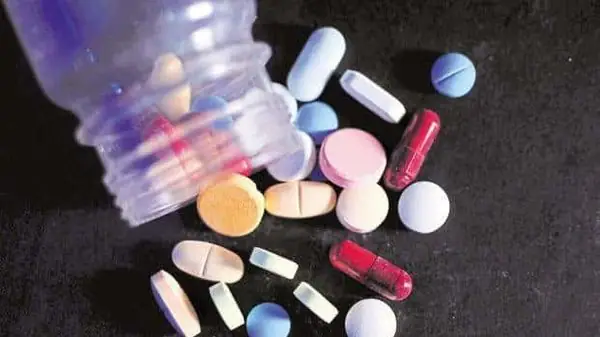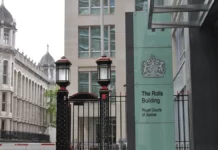Nigerian Doctors in the diaspora have raised alarm over lack of useful pharmaceutical education and prevalence of fake drugs in Nigeria.
Speaking on the dangers of the phenomenon, the Host of a US-based online television medical program known as Medical Mondays with Dr. O, Dr. Oluwatoyin Opesanmi said the problem plaguing the Health system in the country has gone beyond the unabating existence of fake drugs.
According to her, Nigerians are not adequately educated and enlightened about how to detect fake drugs and more importantly, the use of pharmaceutical products.
“For instance, many Nigerians have not been properly educated about how to use certain drugs. In many cases, this is what has led to drug abuse and drug misuse.” She said.
One of the world’s Dental Experts, also based in the US, Dr. Oluwole Ajagbe said his several visits to Nigeria exposed this worsening situation to him.
“I discovered, in my recent visits especially, that most of the Hydrogen Peroxide I saw in many of the pharmacies were fake. But many people don’t know because of the brown color of the bottle. Hydrogen peroxide is colorless, just like water; but it foams once you use it to rinse your mouth. The ones I found in many of the pharmacies in Nigeria don’t foam. It is water.”
“Same thing with Baking soda, which can be used in brushing your teeth.” Said Dr. Ajagbe.
According to him, some of the Baking soda he saw are made with other white substance such as yam flour used to make a popular Yoruba meal known as Amala.
“The ones I saw, they add salt to the powder to give it the taste or look of Baking soda. But it is fake.” He disclosed.
Speaking further, Dr. Ajagbe said, besides the prevalence of fake baking soda, he discovered that many are unaware of the difference between baking soda and baking powder.
“There is a world of difference between the two; although, both look alike. While baking soda is the effective way of killing germs that give mouth odour, baking powder, on the other hand is used for pastries.” He enlightened.
Hydrogen Peroxide and Baking Soda, he added, are the best materials for cleaning the teeth.
Below are pointers to differentiate between authentic and fake Baking Soda, Baking Powder, and Hydrogen Peroxide.
- Baking Soda Test:
•Place a small amount of Baking Soda in a cup of vinegar.
•If the mixture does not produce a noticeable reaction, it may indicate the presence of a counterfeit baking soda product.
•Authentic Baking Soda should produce a fizzy reaction when combined with vinegar. - Baking Powder Test:
•Mix a small amount of Baking Powder with water and observe the reaction.
•Genuine Baking Powder will produce bubbles and release carbon dioxide gas.
•If there is no reaction or minimal bubbling, it could be a sign of a counterfeit product. - Hydrogen Peroxide Test:
•Squirt or pour a small amout of Hydrogen Peroxide in your mouth.
•Authentic Hydrogen Peroxide will foam, and continue foaming, expanding its form.
•If there is no foaming, it may be suggestive of a fake product.
•Apply a small amount of Hydrogen Peroxide to a cut or wound.
•Authentic Hydrogen Peroxide will cause bubbling or foaming, indicating its effectiveness as an antiseptic.
•If there is no reaction or minimal bubbling/foaming, it may be an indication of a fake Hydrogen Peroxide product.
Calling on the relevant Agencies, in the Public and Private sectors, Dr. Opesanmi said it has become more important for the government and non governmental organizations to educate the people on how to use drugs and detect fake ones.
“Health is wealth, as you know. To have good health, it is no longer enough to take certain drugs, it is now urgent to know how to use those drugs, and since the adulterated versions seem to be taking over the pharmaceutical landscape, you will agree with me that learning to know ways to identify the fake ones has become more critical.
I know NAFDAC used to tell Nigerians how to identify certain fake drugs; I believe they should continue, and do more to curb the rising spate of fake drugs in the market.” She advised.
The Punch Editorial titled
“Counterfeit drugs threaten Nigerians’ health” published in the
12th February 2023 edition of the publication, affirmed that NIGERIA’S shambolic healthcare delivery system is under renewed attack from several fronts.
Besides frequent outbreaks of diseases, dependence on imported medicines and the exodus of medical professionals, the influx of fake and substandard drugs has become a deluge, causing illnesses, disabilities and deaths in Nigeria and other West African countries.
The government needs to urgently reinvigorate its strategy to protect the people from the scourge of counterfeit drugs.
Assailed by outbreaks of cholera, lassa fever, and diphtheria, among others, in several of its constituent parts, and with a weak health system, fake drugs are compounding the misery of Nigerians and the sub-region.
A new report by the United Nations Office on Drugs and Crime underscores the consequences of the influx.
It said substandard drugs kill 500,000 persons in sub-Saharan Africa each year.
As many as 267,000 deaths per year, are linked to falsified and substandard anti-malarial medicines, the transnational organised crime threat assessment found.
Additionally, up to 169,271 deaths are linked to falsified and substandard antibiotics used to treat severe pneumonia in children. Recent alerts from the National Agency for Food and Drug Administration and Control warn of adulterated cough syrups, antibiotics and other children’s remedies in the market.
Counterfeit drugs are a deadly and growing problem globally, particularly in developing nations where supply chain security is limited, undermining progress towards meeting the UN’s Sustainable Development Goals. Nigeria’s case is dire.
While experts estimate that about 10 percent of drugs in circulation worldwide are fake, a report in Bayero University, Kano’s Journal of Basic and Clinical Sciences (2017) suggested that between 41 to 50 percent of drugs in Nigeria were substandard.
On the average, the World Health Organisation says one in 10 medical products circulating in developing nations is substandard.
Medical Mondays With Dr. O is Livestreamed every Monday at 12 midnight Nigerian time.











